
Free T4 (FT4) Test
Free T4 (FT4)
Free T4, also called Thyroxine is one of the two hormones secreted by the thyroid glands (a small, butterfly-shaped gland in your neck). Thyroxine exists in two different forms: bound and free. Some of the T4 in your blood is bound to proteins, while some circulate freely in the blood. This freely circulating T4 is termed free T4. T4 is a prohormone (inactive form) of thyroid hormone. This T4 is converted to T3, an active form of thyroid hormone, and affects the tissues in the body.
The Free T4 test measures the amount of freely circulating T4 in your blood.
Other names of Free T4 include FT4, free thyroxine, T4 index, thyroxine screen, free T4 concentration.
Thyroxine helps regulate body metabolism and body temperature, fastens the pulse and increases heartbeat, and affects brain development
What is FT4 test used for?
This test is indicated when you have symptoms of too much or too little thyroid hormone. These include:
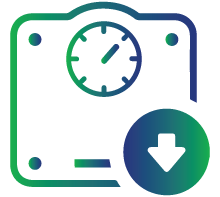
Weight gain

Fatigue

Dry skin

Thinning hair
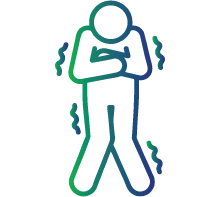
Sensitivity to cold temperatures
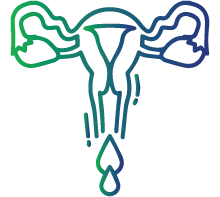
Heavy bleeding

Irregular periods
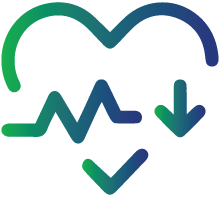
Slow heart rate

Depression
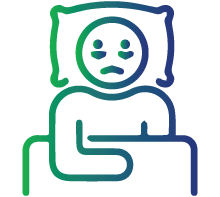
Trouble sleeping

Goitre (an enlarged thyroid gland

Shaky hands
Who should get tested?
This test is indicated if you:

Are above 40 years of age

Have a family history of thyroid conditions

Have a past history of thyroid disorders

Have abnormal findings of other thyroid tests such as TSH and T3
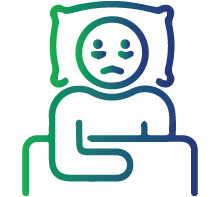
Show signs and symptoms of overactive/underactive thyroid functioning

Show lump or nodule in the thyroid
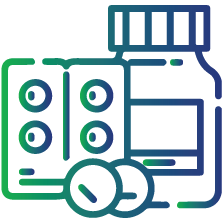
Take too much thyroid medicine
Test preparation:
Your healthcare provider will collect a sample of your blood by inserting a needle in the vein of your arm.
Please tell your healthcare provider if you are taking any medicines such as vitamin B7 (Biotin), as biotin may interfere with the test results of free T4.
Interpretation of results
The normal ranges for healthy individuals as per their age are as shown in below table
|
Age group |
Normal ranges in nanograms per decilitre (ng/dL) |
|
Children up to 5 years old |
0.8-2.8 |
|
Children 6 to 15 years old |
0.8-2.1 |
|
Adolescents males (16 to 17 years old) |
0.8-2.8 |
|
Adolescents females (16 to 17 years old) |
0.8-1.5 |
|
Adults over 18 years old |
0.9-1.7 |
Deviations from the normal ranges:
· Higher than normal free T4 levels in the blood may be an indication of thyrotoxicosis. It could be due to various reasons, such as hyperthyroidism, thyroid inflammation, and too much intake of thyroid medication.
· An increase in free T4 is also seen during pregnancy and with the consumption of estrogen-containing birth control pills.
· Lower than normal free T4 levels in the blood may be an indication of hypothyroidism. It could be due to various reasons, such as autoimmune diseases, a reduced intake of iodine in the diet, or the use of certain medicines
FAQs
What is the turnaround time (TAT) for the free T4 test?
The test results of the free T4 test are generally available within 1-2 working days after the sample collection. However, it may take a little longer at times
Are there any risks associated with the free T4 test?
No. There are no major risks associated with the free T4 test. It is a simple blood test and involves negligible risk associated with it such as feeling a slight sting or bruise at the site of needle insertion. This usually resolves within a few minutes to several hours
Can I undergo free T4 testing during pregnancy?
Yes, if required. Thyroid levels typically fluctuate during pregnancy. If you already have a thyroid condition, developed one during pregnancy, or are suffering from morning sickness at the end of your first trimester, your healthcare provider will recommend a free T4 test. Nonetheless, thyroid levels are checked every 4-6 weeks during the first five-six months of pregnancy to ensure a safe pregnancy
What are the normal ranges for free T4 during pregnancy?
The normal levels of free T4 in healthy pregnant women are as shown below:
|
Pregnancy trimesters |
1st trimester |
2nd trimester |
3rd trimester |
|
Free T3 normal levels (ng/dL) |
0.26-1.92 |
0.59-1.56 |
0.65-1.25 |
What medications can affect my free T4 test results?
Several medications can have an impact on the results of a free T4 test. Some examples include phenobarbital, biotin (vitamin B7), and steroids, as well as certain birth control pills. These medicines can cause free T4 tests to appear abnormal even if the levels are normal in the blood

